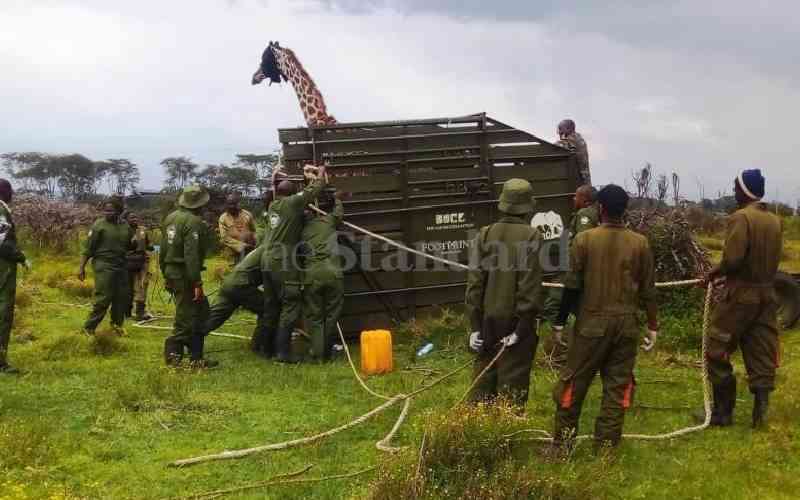×
The Standard e-Paper
Home To Bold Columnists

Conservation groups have appealed to the Kenya Wildlife Service (KWS) to enhance the protection of Somali Giraffes and ostriches in Garissa, Wajir and Mandera counties.
North-Eastern Wildlife Conservancies Association (Neca) has written to KWS Director General Erastus Kanga to intervene and end rampant poaching of the giraffes and ostriches for their meat, part of which is smuggled to Somalia.